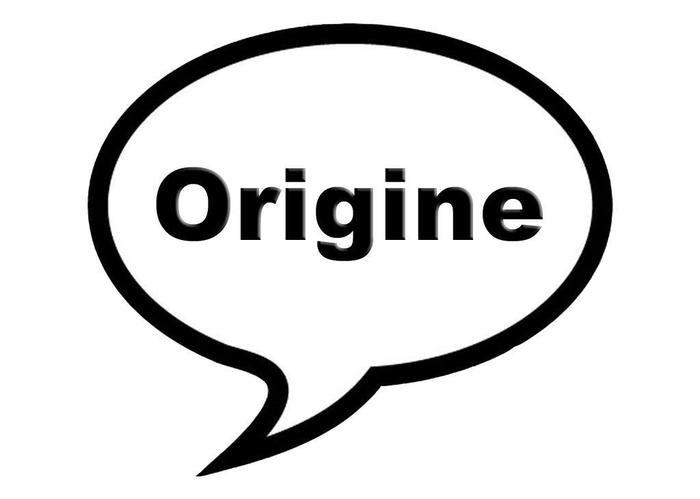Here is a dangerous word.
Asking 'how it all began' is human and there is certainly nothing wrong with that.
Claiming that the answer is univocal is much more problematic.
And the very story of the spread of Covid in Italy proves this.
From February 21, when thanks to the intuition of an anesthetist the positivity to the Mattia virus in Codogno was certified, the spasmodic search for the so-called patient zero began.
Even today, while the so-called second wave of the pandemic is in full swing and President Trump speaks of the 'Chinese plague', so that it is clear where it comes from and who the enemy is, there is still debate on the origin of the virus and despite the opinion of scientists there are also those who re-propose the thesis of the laboratory from which they would have escaped by mistake or worse still widespread for no one knows what reasons.
Listen to "Word of the week: origin (by Massimo Sebastiani)" on Spreaker.
Apart from the fact, already singular in itself, that the zero of the expression 'patient zero' arises from an error (it was a letter 'o' and indicated the abbreviation of 'out of California' for the patient, Canadian, who was believed to have brought AIDS to the United States in 1980: it was not true), this now mythological figure has never been identified and the spread, especially in Lombardy and in the North-East, was so rapid that the problem immediately became that of limiting the contagion as much as possible rather than chasing the greaser.
And on the other hand, just like in the case of AIDS in America, we now know that the virus had been circulating in Italy for weeks before, if not months, and that at the time Mattia was 'discovered', patient zero it may have already evaporated.
Codogno, where President Mattarella wanted to celebrate the Republic Day, remains a powerful symbol, like the place where it all began.
Because the search for origins is something that has more to do with symbols and myths than with reality.
At the beginning (attention: not at the origin) of his rigorous and entertaining 'The myth of origins', the historian of the Middle Ages and food Massimo Montanari mentions the great Marc Bloch and recalls his expression 'idol of the origins'.
And he explains that if we speak of origin in the sense of beginning, then the concept is quite clear (even if not eternal: just think of how many times the date of human appearance on Earth has been moved).
But when (as in the case of patient zero) we intend to refer to the cause, that is, to what determines and 'guarantees' or explains everything that comes after, then things get complicated and the contradiction is around the corner.
Art can afford extraordinary poetic syntheses such as that of 'Origine du monde', the painting by Gustave Courbet that belonged to Jacques Lacan which highlights a female organ and which only the Facebook algorithm does not recognize as a work of art .
But history isn't.
Origin derives from the Latin orīgo, linked to the verb orīri which means to rise and indicates first the source, then the lineage or ancestor.
The idol of the origins is what drives us to believe that just as something begins it must also continue while the path of a thing, a person, even the representation of an event or a plate of pasta (as Montanari reconstructs) and of course of a virus show that things change, they have a life, they change and in this their identity ultimately consists.
Which many, for the most diverse reasons, would like to be sculpted once and for all.
This is why, as anthropologists know, certain traditions are invented from scratch 'a posteriori' (the kilt, the greatest symbol of Scottish identity, was created by an English businessman).
Bloch's' fulminating metaphor 'cited by Montanari in his book concerns the oak:' The oak is born from the acorn.
But it becomes oak and remains so only if it meets the favorable environmental conditions, which no longer depend on embryology '.
The origins (the acorn) exist and are the necessary conditions of something.
But they are not enough.
Tarzan is still a man but his abilities are not inscribed in his genetic heritage from the beginning.
It took a special education: that which allows him to 'leap six meters in the air to the dizzying height of the treetops'.
In short, you cannot make a clean sweep of the history of something if you want to understand and explain it.
Unless the blank slate is the goal: as in the science fiction series where a group of characters are sent to a planet advertised as the ideal place to start a 'new' life from scratch.
The title?
Origin.

